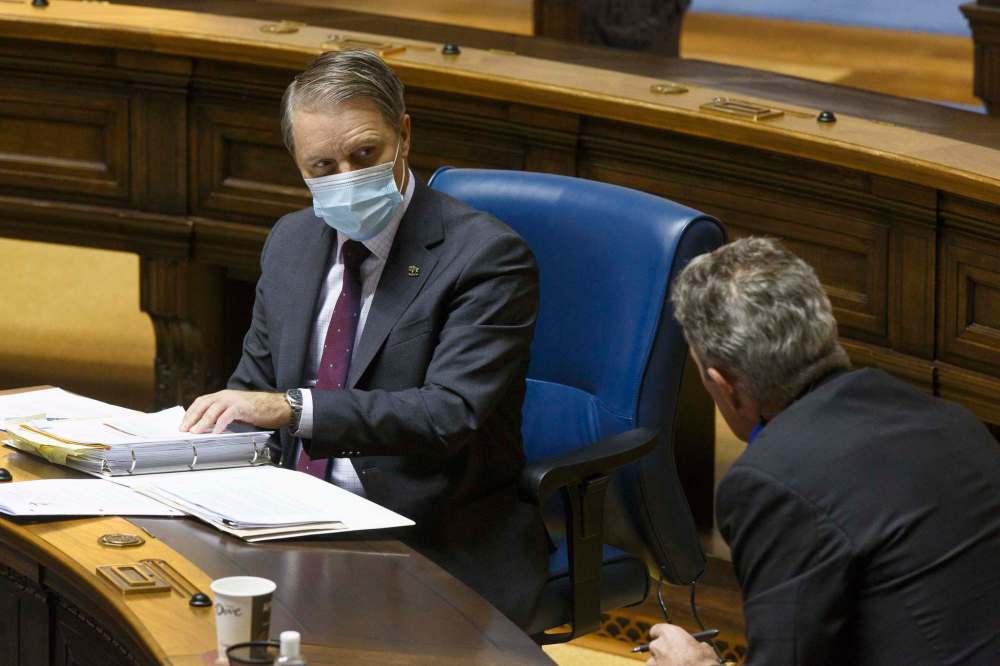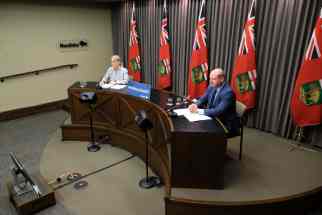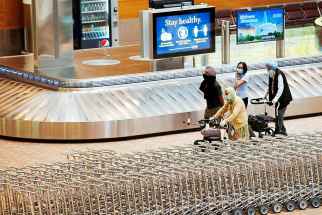Begin setting priorities for COVID-19 vaccine
Read this article for free:
or
Already have an account? Log in here »
To continue reading, please subscribe:
Monthly Digital Subscription
$0 for the first 4 weeks*
- Enjoy unlimited reading on winnipegfreepress.com
- Read the E-Edition, our digital replica newspaper
- Access News Break, our award-winning app
- Play interactive puzzles
*No charge for 4 weeks then price increases to the regular rate of $19.00 plus GST every four weeks. Offer available to new and qualified returning subscribers only. Cancel any time.
Monthly Digital Subscription
$4.75/week*
- Enjoy unlimited reading on winnipegfreepress.com
- Read the E-Edition, our digital replica newspaper
- Access News Break, our award-winning app
- Play interactive puzzles
*Billed as $19 plus GST every four weeks. Cancel any time.
To continue reading, please subscribe:
Add Free Press access to your Brandon Sun subscription for only an additional
$1 for the first 4 weeks*
*Your next subscription payment will increase by $1.00 and you will be charged $16.99 plus GST for four weeks. After four weeks, your payment will increase to $23.99 plus GST every four weeks.
Read unlimited articles for free today:
or
Already have an account? Log in here »
Hey there, time traveller!
This article was published 30/11/2020 (1841 days ago), so information in it may no longer be current.
The COVID-19 vaccines are not even available yet and already the country is echoing with debate about who should be first in line for the jab. It is an unfortunate certainty that some people will be vaccinated before others as the vaccine supply falls short of immediate demand. The patience of many people will be tested when they’re told they have to wait their turn.
Elderly people living in congregate settings should obviously be immunized as soon as possible. Experience in Manitoba and across Canada shows they are at great risk of contagion and fatal results.
Hospital and personal care home employees are also exposed to the virus more than most people. The community needs to keep them healthy and on the job while the pandemic continues.
After that, reasonable people can disagree about the relative urgency of immunizing grocery store workers, ambulance drivers, residents of northern Indigenous communities, residents of Hutterite colonies, people with chronic illnesses, elderly people living at home, university students living on campus, people planning overseas travel and other identifiable categories of people exposed to coronavirus risk.

Federal health authorities might usefully provide statistical breakdowns showing the levels of risk affecting identifiable groups of Canadians. This could help provincial health authorities make wise and well-informed choices among claimants for early immunization.
Ottawa, however, should probably not dictate a priority list because choices that are reasonable for one province may seem less reasonable in the circumstances of another province.
Some people are sure to complain they have been unfairly denied access to the first batches of vaccine. A national set of criteria dictated from Ottawa might be politically convenient for Manitoba’s Brian Pallister and other provincial premiers if it sheltered them from the anger of those shunted to the back of the line. It would not, however, guarantee the wisest choices.
Manitoba had a difficult November. Despite curtailment of shopping and social gatherings, the province continued diagnosing about 300 to 480 new COVID-19 cases on most days through November. The number of patients hospitalized with the disease climbed to 336 at the end of the month from 120 at the start. The number in intensive care rose to 44 at month-end from 18 at the start. This trajectory suggests that demand for hospital care will increase as the winter advances.
Immunization of the Manitobans at greatest risk should begin to slow the spread of the disease, perhaps by late winter, and eventually reduce the demand for hospital care. Health Minister Cameron Friesen’s task force planning the immunization drive should start from the province’s experience with the virus thus far. They should calculate as finely as possible how many days of hospital care and how many deaths can be saved by immunizing one category of Manitobans as opposed to another. Priority should go where the greatest benefit is available.
This may involve offending some citizens who feel they deserve priority. Mr. Friesen can help by showing that the government’s choices have a rational basis and are not affected by favouritism or political influence. That won’t necessarily silence the discontented, but it should support public confidence that the system is being intelligently managed.
There is no knowing yet which vaccines will be shipped in what quantities at what dates. Manitoba should at least know its own needs and its own capabilities, preparing it to make the wisest use of the vaccine when it arrives.








